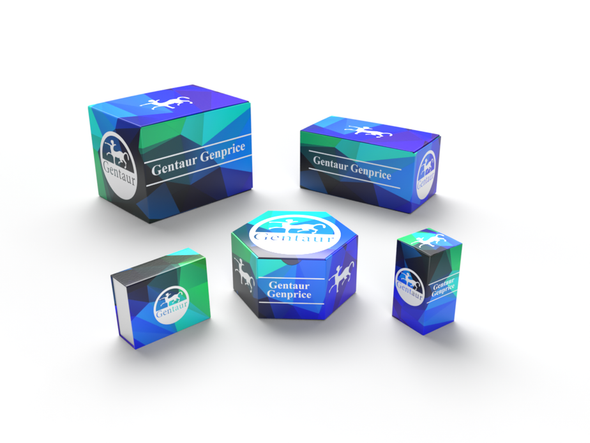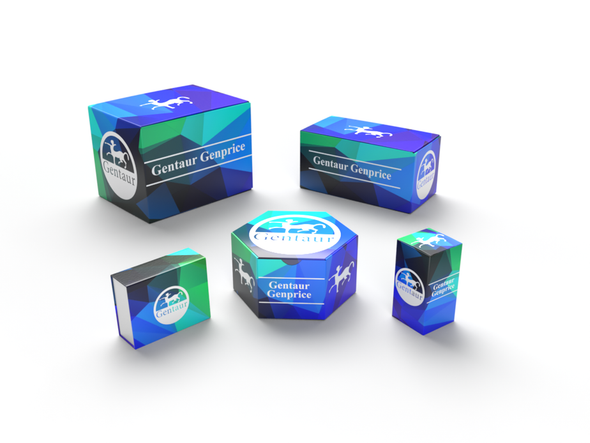Description
Mouse Anti-human Emilin-1 Antibody | 101-M09 | Gentaur UK, US & Europe Distribution
Species: Anti-human
Host / biotech: Mouse
Comment: NEW!
Label: N/A
Clone / Antibody feature: (#1H2/G8)
Subcategory: Monoclonal Antibody
Category: Antibody
Synonyms: Elastin microfibril interface-located protein 1, Elastin microfibril interfacer 1, EMI
Isotype: IgG2a
Application: WB, IF, IHC, ELISA
Detection Range: N/A
Species Reactivity/Cross reactivity: Human
Antigen: recombinant human Emilin-1
Description: Emilins (elastin microfibril interface located proteins) are extracellular matrix glycoproteins that localize to sites with proximity to elastin and microfibrils. They consist of an N-terminal cysteine-rich EMI domain and a conserved C-terminal gC1q-like domain. Emilin-1 is abundant in elastin-rich tissues such as blood vessels, skin, heart and lung. It influences placenta formation and initial organogenesis with a later role in interstitial connective tissue. Emilin-2 is larger than Emilin-1 and contains a unique proline-rich domain. It is likely involved in the process of elastogenesis. Multimerin-2 (also known as Emilin-3 or EndoGlyx-1) is expressed during embryonic development. Multimerin-1 (also known as Emilin-4) is expressed in platelets and the endothelium of blood vessels and may act as a carrier protein for platelet factor V. Emilin-5 is encoded by the Emilin-3 gene and is sometimes referred to as Emilin-3. It contains the N-terminal cysteine-rich EMI domain but lacks the C-terminal gC1q-like domain. Emilin-1 have been shown to be expressed in smooth muscle and other mesenchymal tissues and is localized at the proximity of elastin and microfibrils. Emilin-1 exerts an important role in lymphatic system, being a crucial structural molecule that regulates the formation of lymphatic capillaries and collectors. Emilin-1 through the interaction with the α4β1 integrin via the C-terminal gC1q domain exerts a negative effect on proliferation. It binds pro-TGFβ preventing its maturation to mature TGFβ in the extracellular space, therefore influencing the regulation of blood and lymph vessels formation and maintenance.
Purity Confirmation: N/A
Endotoxin: N/A
Formulation: lyophilized
Storage Handling Stability: The lyophilized antibody is stable for at least 2 years at -20°C. After sterile reconstitution the antibody is stable at 2-8°C for up to 6 months. Frozen aliquots are stable for at least 6 months when stored at -20°C. Addition of a carrier protein or 50% glycerol is recommended for frozen aliquots.
Reconstituation: Centrifuge vial prior to opening. Reconstitute in sterile water to a concentration of 0.1-1.0 mg/ml.
Molecular Weight: N/A
Lenght (aa): N/A
Protein Sequence: N/A
NCBI Gene ID: 11117






